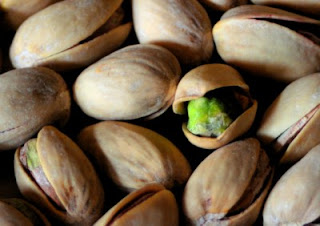While I was taking a walk through the woods the other day, I stopped and stood under this tree and listened to the sound of its branches rustling in the wind. It reminded me of one of my favorite poems.
The Autumn
Elizabeth Barrett Browning (1833)
Go, sit upon the lofty hill,
And turn your eyes around,
Where waving woods and waters wild
Do hymn an autumn sound.
The summer sun is faint on them -
The summer flowers depart -
Sit still - as all transform'd to stone,
Except your musing heart.
How there you sat in summer-time,
May yet be in your mind;
And how you heard the green woods sing
Beneath the freshening wind.
Though the same wind now blows around,
You would its blast recall;
For every breath that stirs the trees,
Doth cause a leaf to fall.
Oh! like that wind, is all the mirth
That flesh and dust impart:
We cannot bear its visitings,
When change is on the heart.
Gay words and jests may make us smile,
When sorrow is asleep;
But other things must make us smile,
When sorrow bids us weep!
The dearest hands that clasp our hands, -
Their presence may be o'er;
The dearest voice that meets our ear,
That tone may come no more!
Youth fades; and then, the joys of youth,
Which once refresh'd our mind,
Shall come - as, on those sighing woods,
The chilling autumn wind.
Hear not the wind - view not the woods;
Look out o'er vale and hill -
In spring, the sky encircled them -
The sky is round them still.
Come autumn's scathe - come winter's cold -
Come change - and human fate!
Whatever prospect Heaven doth bound,
Can ne'er be desolate.
















